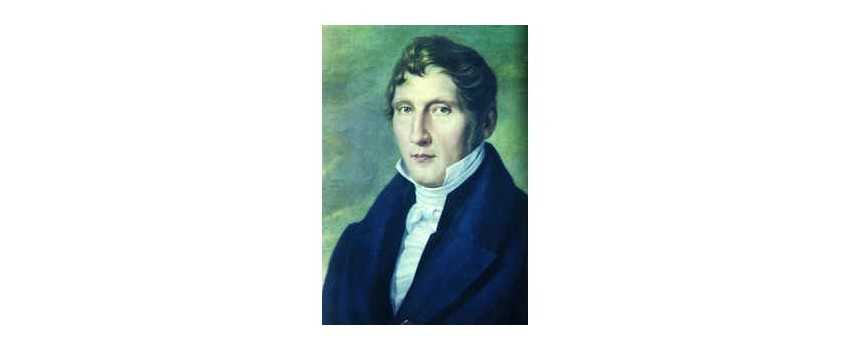Spohr Concerto No. 8 in a minor Op47 (Peters)
Spohr, Concerto No. 8 in a minor (Peters)...
Louis Spohr was a renowned composer, violinist, and conductor from Germany. Born on April 5, 1784, he left an indelible mark on the world of music with his remarkable compositions and innovative contributions. Throughout his lifetime, Spohr composed many musical works, including symphonies, operas, concertos, oratorios, chamber music, and art songs. His unique style bridged the gap between Classical and Romantic music, earning him recognition as a pioneer of the Romantic era. Although his music was largely forgotten after his death, there has been a resurgence of interest in his work in recent decades, particularly in Europe.
Early Life and Musical Journey
Spohr's musical journey began at a young age. Born in Braunschweig, Germany, he showed prodigious talent on the violin from an early age. Under the guidance of his father, who was a musician himself, Spohr received comprehensive training in violin technique and music theory. At six, he started taking violin lessons and quickly progressed, captivating audiences with his exceptional skills.
Symphony and Orchestral Music
Spohr's compositional output encompassed various genres, including symphonies and orchestral music. Throughout his career, he composed ten symphonies, each showcasing his development as a composer. His earlier symphonies reflected the classical style of his predecessors, while his later works embraced programmatic elements and explored new musical territories. One notable example is his sixth symphony, which traverses different styles, from the influence of Bach and Handel to the modern era. Another standout is his seventh symphony, featuring a double orchestra and representing human life's sacred and secular aspects. His ninth symphony, "Die Jahreszeiten" (The Seasons), is a captivating musical depiction of the seasons.
Violin Concertos
Spohr's virtuosity on the violin is exemplified in his eighteen violin concertos, which he composed between 1803 and 1844. This extensive collection of concertos is unparalleled in its breadth and depth, showcasing Spohr's mastery of the instrument. One of his most unique and frequently performed concertos is Concerto No. 8, a one-movement piece written in the style of an operatic aria. This concerto, championed by renowned violinist Jascha Heifetz and, more recently, by Hilary Hahn, captivates audiences with its lyrical beauty and expressive qualities. Spohr also composed two concertos for double violin, further pushing the boundaries of violin composition.
Chamber Music
In addition to his symphonies and concertos, Spohr significantly contributed to chamber music. His repertoire includes a series of 36 string quartets and four double quartets, showcasing his ability to weave intricate musical dialogues within a small ensemble. These chamber works exhibit Spohr's compositional prowess and ability to create dynamic and engaging compositions for intimate settings. Furthermore, he composed numerous quartets, duos, trios, quintets, sextets, octets, and nonets, displaying his versatility and skill in writing for various chamber music configurations.
Operas and Vocal Works
Spohr's operas and vocal works hold a significant place in his oeuvre. Operas such as "Faust," "Zemire und Azor," and "Jessonda" enjoyed popularity well into the twentieth century, with the latter facing censorship by the Nazis due to its portrayal of a European hero falling in love with an Indian princess. Spohr's oratorios, particularly "Die letzten Dinge" (The Last Judgment), gained acclaim in England and America during the nineteenth century. His choral pieces and songs, including the collection "Deutsche Lieder" (German Songs), further exemplify his skill in crafting vocal compositions that evoke deep emotions and transcend cultural boundaries.
Innovations and Legacy
Spohr's contributions to music extended beyond composition. He was a pioneering figure in developing musical instruments and conducting practices. Spohr's invention of the violin chinrest revolutionized how violinists held their instruments, providing greater comfort and stability. Additionally, he was one of the first conductors to use a baton and introduced rehearsal letters and markings throughout the sheet music that guided the performers during rehearsals. These innovative practices saved time and enhanced the efficiency of orchestral rehearsals.
Educational Legacy
Besides his musical accomplishments, Spohr also left a lasting educational legacy. His treatise on violin technique, "Violinschule" (Violin School), formalized many contemporary innovations in violin playing, including spiccato. This influential instructional text became a standard resource for violinists seeking to refine their skills and explore new technical possibilities. Spohr's autobiography, published posthumously in 1860, provides valuable insights into his life and musical journey, offering a glimpse into the mind of this remarkable composer and violinist.
Rediscovery and Revival
Although Spohr's work fell into obscurity after his death, there has recently been a resurgence of interest in his music. His compositions gained renewed recognition in the late twentieth century, particularly in Europe. Musicians and audiences alike have come to appreciate the depth and beauty of his compositions, which exemplify the transition from the Classical to the Romantic era. Spohr's music continues to captivate listeners with its emotional depth, technical brilliance, and innovative approach.
Conclusion
Louis Spohr's contributions to music as a composer, violinist, and conductor remain significant and enduring. His compositions, spanning symphonies, concertos, chamber music, operas, and vocal works, showcase his mastery of various genres and ability to bridge the gap between Classical and Romantic styles. Beyond his musical creations, Spohr's innovations in instrument design, conducting practices, and educational writings have left an indelible mark on the music world. As his work experiences a revival, it is clear that Louis Spohr's legacy will continue to inspire and captivate audiences for generations.

Spohr, Concerto No. 8 in a minor (Peters)...
Louis Spohr’s Violin Concerto No. 2 in D Minor, Op. 2, composed in 1803, is a prominent work in the violin repertoire, highlighting the interplay between violin and piano. The concerto features three movements, beginning with a dramatic Allegro that showcases the violin’s soaring melody, followed by a lyrical Adagio emphasising expressive dialogue. The energetic finale, Allegro, presents playful themes that challenge the violinist’s precision, ending in a thrilling conclusion. Celebrated for its technical demands and musicality, this concerto remains a favourite among violinists and is available in a clear edition by Peters.